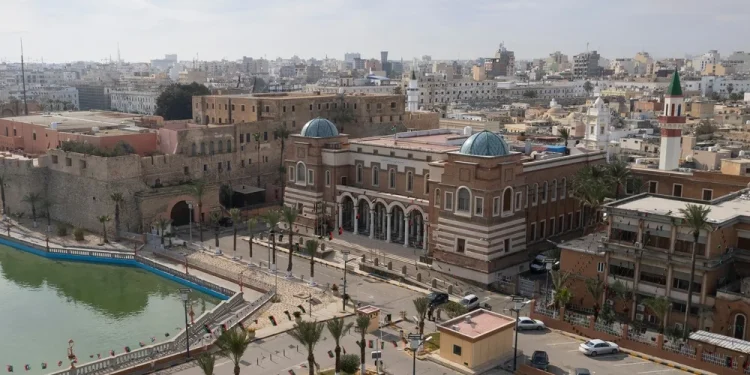Libya’s Central bank governor, Sadiq Al-Kabir and other senior bank officials have fled the country to seek protection from potential attacks, just days after a new leadership team accused them of absconding with crucial passwords.
“Militias are threatening and terrifying bank staff and are sometimes abducting their children and relatives to force them to go to work,” Kabir told The Financial Times via telephone.
The estranged governor added that the interim prime minister Abdul Hamid al-Dbeibah attempts to replace him are illegal and contravened U.N negotiated accords on control of the Central Bank. The apex bank is crucial to the country’s economy, holding US$27 billion in reserves, thanks to oil revenues.
According to Bloomberg, the attempt to oust Al-Kabir, which included an executive order from al-Dbeibah and law enforcement taking control of the building, partially failed after the new team realised it did not have the passwords necessary to keep the payments flowing.
Libya, a North African country with 6.8 million people, is still facing hangovers dating back to the 2011 Nato-backed uprising that overthrew the long term leader Muammar Gaddafi. Since then, the country has been divided between the UN- recognised government based in Tripoli under Dbeibah and the rival eastern administration under Khalifa Haftar. While the Tripoli government has tried to replace Al-Kabir, the Haftar administration in the East, which controls most of the country’s oil production, is against the move.
The Libya Central Bank leadership Crisis
Libya is a member of OPEC, producing about 1.18 million barrels per day in July. On Monday 26th August 2024, the Haftar administration suspended all oil production and exports until further notice citing ‘force majeure.’ The move was also prompted by repeated attacks on leaders, employees and administrations of the Central Bank which manages Libya’s large oil resources and the state’s budget.
The locations affected are about 90 percent of the country’s oil fields and terminals, shutting down the country’s main source of revenue.
Before his dismissal, Al-Kabir had reportedly accused Dbeibah of overspending which led to surging inflation and exchange rate pressures. Al-Kabir, on the other hand, is facing criticism on management of oil resources and the state budget. The embattled governor steered on against dismissal attempts, prompting a stand off between rival factions.
In a series of events that began in early August, the western-based government allegedly attempted to capture control of Libya’s Central bank. The apex bank suspended operations on 18th August following the abduction of the head of Information Technology who was released just a day later.
A week earlier, armed men reportedly besieged the bank in an attempt to force resignation of the governor at the Tripoli headquarters. The presidential council then appointed Muhammad Abdel Salam as the new governor with both the House of Representatives and the High Council of State rejecting the decision.




